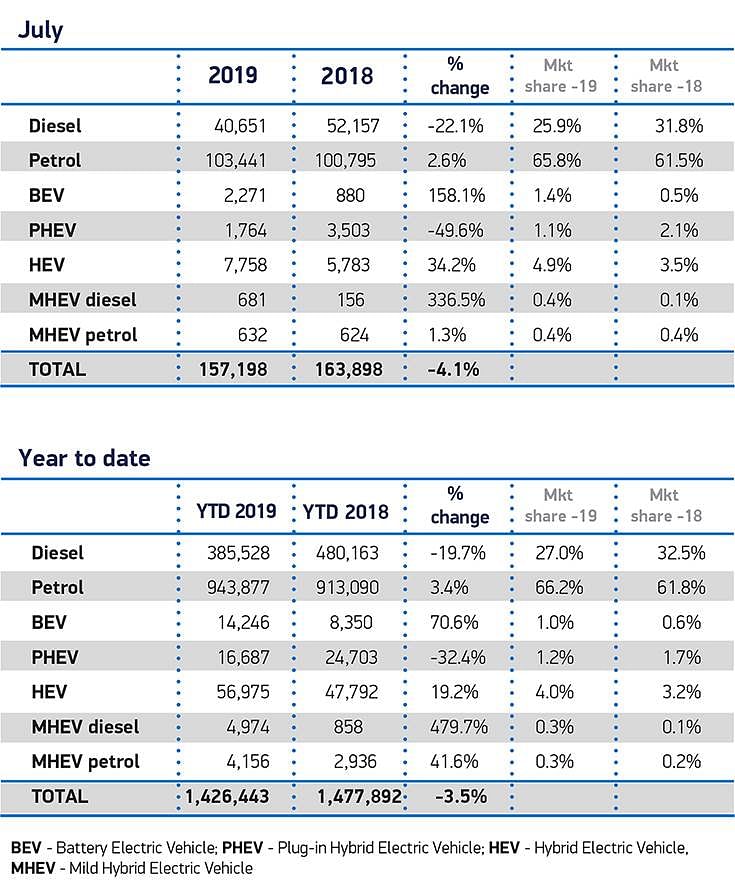More EV charging stations than fuel stations in the UK now
Almost 80 percent of UK petrol stations have closed since 1970, whilst the number of EV charging locations has increased from a few hundred in 2011 to more than 9,000 in August 2019.
July 2019 saw the UK record a sharp rise in demand for EVs, pushing electric cars to their highest-ever share of the UK car market, while sales of diesel and plug-in hybrid cars continued to fall. What's helping the charge of electric mobility and the increasing adoption of EVs amongst UK motorists is the growth in the number of EV charging stations.
There are now almost 1,000 more public places to charge electric cars than there are forecourts to pump petrol in the UK – 9,300 EV charging locations compared to 8,400 fuel stations. This is as per data published by Nissan.
In less than a century since Britain’s first fuel station opened – November 1919 at Aldermaston in Berkshire2 – the number of forecourts has peaked, declined and been overtaken by charging stations designed for battery, not combustion, powered cars.
Almost 80 percent of UK petrol stations have closed since 1970, whilst the number of electric vehicle charging locations has increased from a few hundred in 2011 (when the Nissan Leaf went on sale) to more than 9,000 in August 2019.
Of these locations, more than 1600 provide ‘rapid charging’, and can recharge a typical EV battery to around 80% in under an hour. According to Zap-Map, two new rapid charge devices came online every day in the last month. Almost all UK motorway service stations have charging stations installed, the majority of which provide a rapid charge option.
Transport for London has installed more than 1,000 EV charge points in the last year alone3, yet supply of conventional fuel within the capital is becoming scarcer. Central London has nearly half as many petrol stations per car as the Scottish Highlands4; only four remain within the congestion-charge zone. One of the country’s oldest forecourts, the Bloomsbury Service Station, which had been in operation since 1926, was closed in 2008.
The introduction of the new Ultra-Low Emission Zone (ULEZ) in April 2019, has led to increasing numbers of London drivers looking to zero-emission solutions for their commuter or commercial transport needs.
Most electric vehicle owners only need to charge at home however, so the UK government is looking to further support EV adoption, recently announcing a proposal for the installation of charge points for EVs in all new housing.
Kalyana Sivagnanam, managing director, Nissan Motor (GB), commented; “Many consumers are saying their next car will be electric. That means the industry needs to ensure their desires are met with both the car – how far it can go, what technologies it has – and how it interacts with the world around it – where they can charge and how convenient that is for them.
“We’ve moved beyond the early concerns of range anxiety with EVs now exceeding the vast majority of customer’s daily driving needs. The next challenge is for charging infrastructure to keep pace with the number of EVs on the road, and that the experience of recharging is as enjoyable and effortless as that of all-electric driving.”
Since Nissan launched the first mass-market electric vehicle – the Leaf – in 2010, EV technology has continually improved, with the latest models both affordable and practical for the majority of new car buyers. As a result, the UK is experiencing unprecedented growth in the demand for battery-powered transport.
In July 2019, compared to the previous year, demand for battery electric vehicles increased 158.1 percent, resulting in a 1.4 percent market share, the highest monthly market share on record.
The British government recently pledged £2.5 million to provide more charging facilities in residential areas as part of its plan to bring the country's CO2 emissions down to almost zero by 2050.

Also read: BP Chargemaster activates first 150kW ultra-fast EV chargers in the UK
RELATED ARTICLES
Autoliv Plans JV for Advanced Safety Electronics With China’s HSAE
The new joint venture, which is to be located strategically near Shanghai and close to several existing Autoliv sites in...
JLR to Restart Production Over a Month After September Hacking
Manufacturing operations at the Tata Group-owned British luxury car and SUV manufacturer were shut down following a cybe...
BYD UK Sales Jump 880% in September to 11,271 units
Sales record sets the UK apart as the largest international market for BYD outside of China for the first time. The Seal...






 By Autocar Professional Bureau
By Autocar Professional Bureau
 15 Aug 2019
15 Aug 2019
 9232 Views
9232 Views










 Ajit Dalvi
Ajit Dalvi




